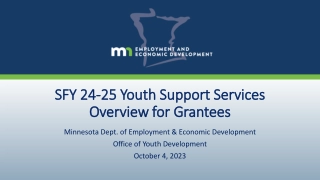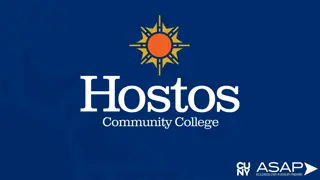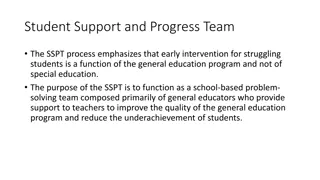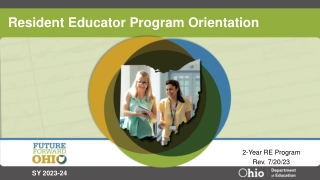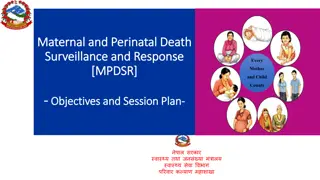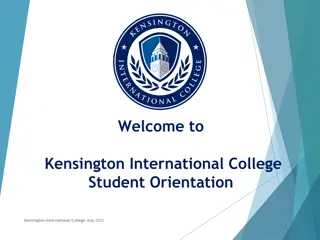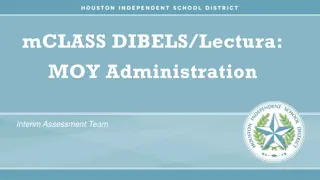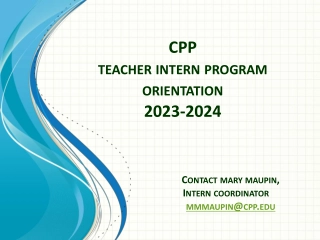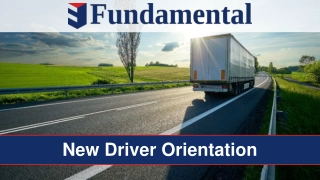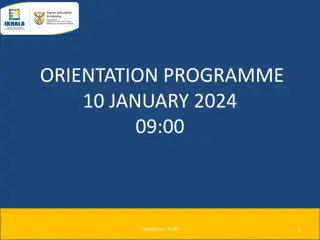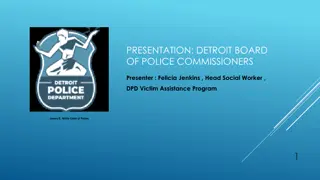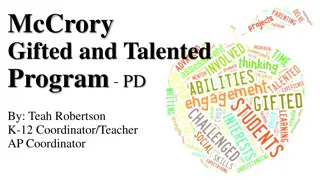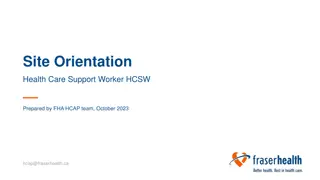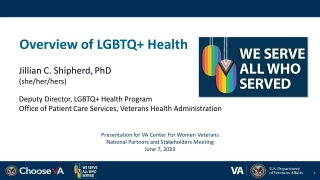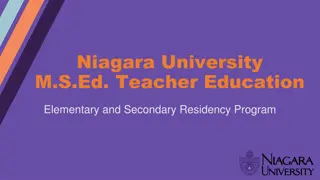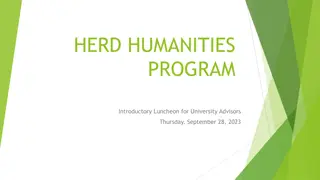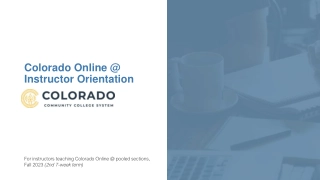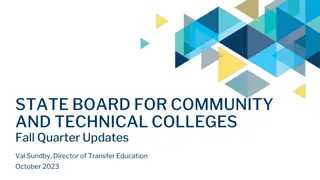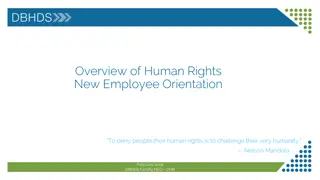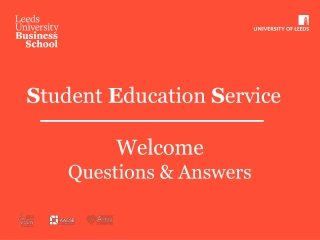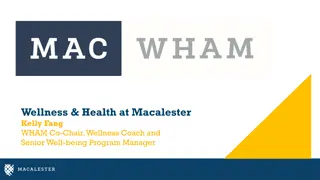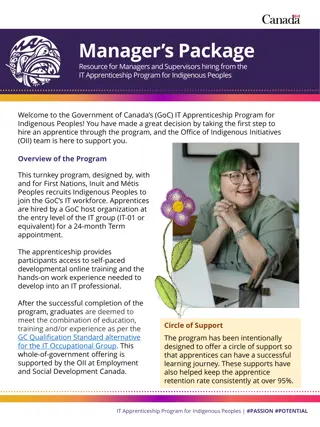Intergenerational Reminiscence Program for Student Orientation: A Comprehensive Overview
Delve into the rich history and mission of [Insert Your Org Name], exploring aged care policies, procedures, and practical tips for interacting with older individuals. Engage in group discussions on fast facts about aged care, including the benefits of intergenerational projects. Discover the significance of acknowledging the First Nations peoples and their relationship to the land. Uncover valuable insights on models of care and shared values with the school's mission.
- Intergenerational Program
- Student Orientation
- Aged Care
- First Nations Acknowledgment
- Elderly Interaction
Download Presentation
Please find below an Image/Link to download the presentation.
The content on the website is provided AS IS for your information and personal use only. It may not be sold, licensed, or shared on other websites without obtaining consent from the author. Download presentation by click this link. If you encounter any issues during the download, it is possible that the publisher has removed the file from their server.
Presentation Transcript
Student Orientation Intergenerational Reminiscence Program: School Orientation [YOUR ORGANISATION LOGO]
Acknowledgment of country Insert your aged care organisation s acknowledgement of country on this slide or use the suggested version below: We acknowledge the First Nations peoples of this nation as traditional custodians of the lands we are living, working and learning on today We pay respects to First Nations ancestors, Elders: past, present and emerging and recognise the unique relationships to the land and waters We are grateful for their spiritual resilience and cultural wisdom
Overview of orientation About Aged Care History and Mission of [insert your org name] About older people Policies and procedures If someone becomes ill Attitudes and listening skills Conversation starters Memento or project ideas [YOUR ORGANISATION LOGO]
Group discussion Fast facts about aged care What do you know about aged care? Would you like to unpack about the fast facts? What are your perceptions? (Prompts: food, daily activities, personal support) What are your concerns? What could be the benefits of meeting older people and working on a project together? When was the last time you had a conversation with an older person? 180,750 Permanent residential places in 2022 215,742 In Home care packages More than 50% of people in residential aged care live with dementia 33% of people receiving care were born overseas; 67% of those are non-English speaking countries 29% of COVID related deaths in Australia were people living in residential aged care Due to poorer health, aged care services are offered to First Nations people from age of 50 years of age
History & Mission of [insert your org name] History How long have we been running? How many packages/ homes? How many residents/clients? Models of care What s special about this organisation? Mission & values Are there values in common with the school mission and values? [YOUR ORGANISATION LOGO]
The older people we care for Age range Type of care (memory support, palliative care, etc) Typical issues faced Issue 1 Issue 2 Issue 3 [YOUR ORGANISATION LOGO]
Relevant policies and procedures Infection control including hand-washing procedures flu & gastro Dress standards Code of conduct How to respond to emergencies such as falls, fires, injuries Any other policies or procedures? [YOUR ORGANISATION LOGO]
Information required Student information and consent forms (signed by guardians) Consent for photographs Confidentiality agreements [YOUR ORGANISATION LOGO]
If someone becomes ill The health of older people can change quite rapidly Older people can be frail and a simple fall can have quite significant impacts on overall health Be aware that an older person could die during the project period. This can be very confronting. If this happens, the aged care organisation will contact the school, and the school [wellbeing officer/pastoral care/project supervisor] will let you know in person Depending upon how far through the project you are, you can choose whether to complete the project and offer your memento to the family, or to work with a new person If needed, you will be offered ongoing support [YOUR ORGANISATION LOGO]
Attitudes to bring What other attitudes or qualities (in addition to the list below) can you bring to the project? Do you have special talents that might be relevant? Acceptance Respect Encouragement Empathy Warmth Kindness Comfort
Listening skills Take time to build rapport with the person Use open questions (not yes or no answers) If you re unclear about something, ask for clarity Have patience, wait for an answer You might want to reflect back what you ve heard Use prompts such as; Can you tell me more about that? And how was that for you? Who, what, where, when? Remember it is a privilege that a person shares their story with you [YOUR ORGANISATION LOGO]
Tips for conversation starters Reflecting on your childhood, what do you remember with fondness? Where did you grow up? What was your home like? Do you have any family traditions? Who were your friends when you were a teenager? How did you spend time together? If you worked, what was your first job? What did you like most about it? What was challenging? Did you ever get engaged or married? How did you meet your spouse or partner? What is your all-time favourite book? Why is that your favourite movie? [YOUR ORGANISATION LOGO]
Tips for conversation starters What gives you most joy in your life now? What makes you laugh? Who were your mentors during your life? What did you learn from them? What has most support you in times of challenge in your life? Do you have a faith? Has this changed over time? How do you express your spirituality? What advice would you offer to us for how to live well? [YOUR ORGANISATION LOGO]
Examples of mementos Interactive multi-media presentation, available on DVD, USB or via weblink so that it can be shared with the older person s loved ones Book of images and text Consider what is best for the older person and their loved ones what technology do they have? Ask what format they would prefer [YOUR ORGANISATION LOGO]
Discussion/questions Share in pairs: What are you looking forward to? What might be challenging? What are your questions? Share one or two thoughts or questions with the wider group if you feel comfortable to do so [YOUR ORGANISATION LOGO]
Thank you Thank you for your interest in getting to know the older people we are supporting They are looking forward to meeting you!




